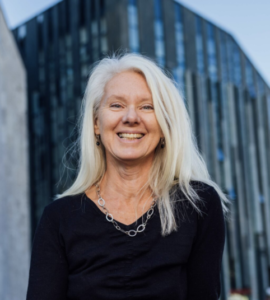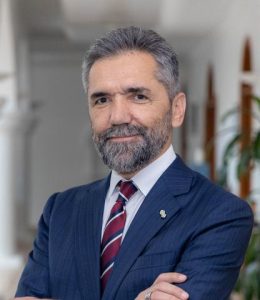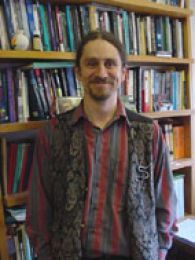 Opening Keynote: The Substantive Content of Nonreligion: Preliminary Reflections from the Nonreligion in a Complex Future Project
Opening Keynote: The Substantive Content of Nonreligion: Preliminary Reflections from the Nonreligion in a Complex Future Project
Prof.Lori G.Beaman, Principle Investigator of NCF , University of Ottawa , Canada
Abstract: Until rather recently nonreligion has been conceptualized around the notion of loss. Indeed, nonreligious people are still imagined by some scholars to be yearning for something or seeking something to fill the imagined void left by the lack of religion. They are also imagined to be less moral than religious people. This paper considers the substantive content of nonreligion through data from the ongoing projects of the Nonreligion in a Complex Future Project.

Plenary Speech : Ādamiyyah: Coexistence with Nonreligion
Prof. Recep Şentürk, Dean of College of Islamic Studies,Hamad Bin Khalifa University, Qatar
Abstract: This paper explores the Islamic legal foundations of the protection of nonreligious individuals, cherishing their existence within predominantly religious landscapes. By highlighting the Ādamiyyah principle, which emphasizes universal human dignity and inviolability, the study examines the ethical-legal frameworks that accommodate diversity beyond faith boundaries. Grounded in Islamic law and jurisprudence, the article illustrates how Islamic governance has historically granted rights, protections, and the freedom to choose to nonreligious individuals alongside faith communities, merely by virtue of their humanity. Through a critical analysis of classical legal texts, historical precedents, and contemporary challenges, this study sheds light on how the Islamic worldview and legal traditions offer a foundation for peaceful coexistence and the recognition of all humans without othering. The Ādamiyyah paradigm emerges as a universalist model for fostering inclusive societies, where the coexistence of religion and nonreligion is not merely tolerated but protected and valued.

Thematic Keynote: Lifestances, (non)religion, and the ethics of relationships
Prof. Douglas Ezzy, Co- Investigator of NCF , University of Tasmania, Australia
Abstract: How do nonreligious people make ethical decisions? This paper takes up Carol Gilligan’s argument for an ethics of care and considers how this applies to the ethics of nonreligious people. I argue that one form of nonreligious ethics stems from a deep sense of their relational embeddedness, both in human and in other-than-human communities. I contrast this with deontological and theological ethics that prioritise duty and obedience to rationally articulated abstract values and norms. I argue that nonreligious relational ethics of care is a particular type of lifestance that leads people into an ethical engagement with the world around them. I illustrate the argument with interviews from the NCF projects on community gardens and trekking led by Profs Beaman, Cragun, and Ezzy
